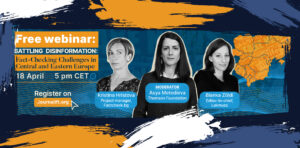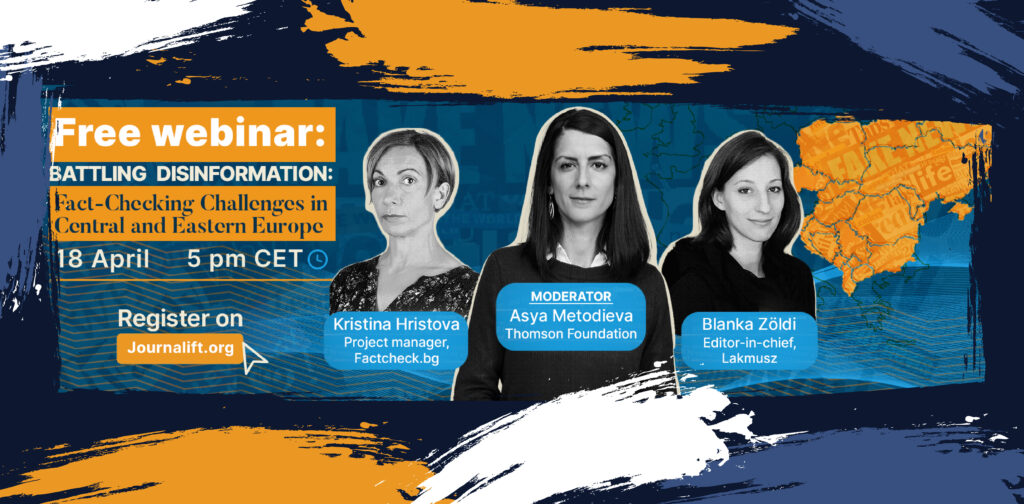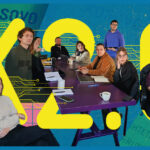Running a media organisation in the Western Balkans (WB) is far from easy. A region beset by instability, corruption with challenges to media freedom which provide a fertile space for disinformation and biased reporting.
Thomson Foundation is working to support media in the region and its recent programmes have made significant progress in creating stronger more financially resilient organisations through increased digital presence, audience engagement strategies, better quality content and new revenue streams.
We have chosen to work with local media who face multiple challenges such as limited resources but who have increasingly become a trusted source of information for the communities they serve.
The foundation has taken part in several ongoing programmes in the region, the most significant support has been provided as part of the three year ‘Media for All’ programme, implemented by the British Council, the Balkans Investigative Reporting Network: BIRN, Intrac and Thomson Foundation and funded by the UK Foreign, Commonwealth & Development Office.
How did we support the media?
Thomson Foundation team encouraged media outlets to design, test and implement innovative models of monetisation and audience engagement strategies, to improve quality of the content production and dissemination and to rationalise their operational processes. We:
- Supported 59 media outlets across the region to develop localised, feasible and innovative business plans;
- Supported 55 media outlets with financial investment of £1.26 million to test their innovative business ideas;
- Provided more than 23.000 hours of mentoring and capacity building trainings for more than 300 people;
- Worked with more than 60 mentors and trainers with expertise in media business, production and marketing from 12 countries from the WB, EU, and UK.
“Our approach was flexible, adaptive to different contexts and to the variety of media needs and gaps our team identified,” explains Davor Marko, programme manager – Central and South East Europe.
From the start of the process, Thomson’s WB team intended to be flexible, to follow realistic media needs and adapt its support to help them. We also systematised and shared educational resources, lessons learned and success stories through our e-learning platform https://journalift.org/.
What we achieved?
Amongst the many successes, there are a number of mid and long-term achievements of note but primarily and most importantly there has been a change in the mind-set of key management and editorial staff to apply more market and business oriented logic.

Media outlets also:
- Significantly improved their digital presence and operation;
- Introduced innovative services, formats and products.
Acquired sustainable skills in mobile journalism, data visualisation, visual storytelling, marketing and sales, web analytics, podcast and crowdfunding amongst others. These skills enabled editorial teams to produce their content in a more attractive and accessible form leading to an increase in readers.

In addition, all the activities have been considered through gender and minority sensitive lenses.
Why business support matters
Thomson Foundation provides ‘business support’ with the aim of increasing the financial resilience of media by encouraging them to introduce and pilot innovative business ideas. Here dedicated mentoring has shown to be one of the keys to achieving successful results.
Seventy-six per cent of the local media outlets managed to earn revenue through their services, products, and businesses or increase their incomes. Sixty-nine per cent made money from newly introduced revenue streams such as advertising, merchandise, subscription, donation and membership.

“We have improved the quality of our broadcasting and created a new marketing offer and price list,” says Fatmira Prodani, Owner Durres Lajm, Albania. “Thanks to that, new local businesses became our clients and started advertising in our media outlet.”
Moving forward
The programme and processes that Thomson Foundation trialled and adapted in the Western Balkans, has helped us understand the changing nature of media development. The organisations with whom we worked were predominantly small, with limited capacities and overstretched between their primary task to produce content and to plan for the future.
Hence we developed a flexible approach based on the “learn as we go” philosophy.
It’s an approach we think will be of benefit to independent media outlets elsewhere.
“Our task at the Foundation is to help media innovators take their skills and export them, to media businesses large and small in Central and Eastern Europe and beyond,” says David Quin Managing Director, Development Thomson Foundation. “So, we’re currently developing a range of programmes that are taking the ever evolving, highly sophisticated, market ready media skills we see in the Western Balkans and gearing them for a wide and diverse set of issues, in places like Moldova, Ukraine and Central Asia, taking the lessons learned to where they are most needed.”
To read the whole report, click here.































